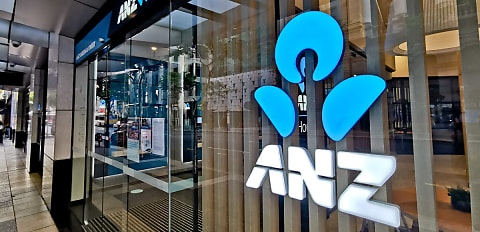The most recent analysis by Jobs and Skills Australia recognised that in 2023, 36 per cent of occupations were affected nationally by skills shortages.
There’s no denying that for many employers, retaining skilled staff is tough. Natalie Smith, general manager of retail broking at ANZ, discussed what her bank is doing to keep assessors happy and engaged.
“We consider ourselves absolute partners and I think what we’ve really done is build a proposition for our assessment teams to feel like they’re really part of the business. Really common goals, and the common goals are really not just around processing times or speed. It’s about outcomes for brokers and customers and that’s something everyone can rally behind,” Smith said.
“People want to feel that they’re contributing to something, they want to contribute to a bigger outcome than [meeting] SLA, that’s not what it’s about for an assessor. They still want to feel that they’re contributing to the business, to the industry, something bigger than just SLA.”
Purpose is an important consideration for employees. Without the drive to perform, engagement and productivity can be impacted.
As discussed by Broker Daily’s sister brand HR Leader, skilled workers want to align their purpose with an employer’s mission.
“Every worker has unique priorities, and competitive wages aren’t always the primary factor in their decision to join an organisation. When looking to attract top talent, a compelling employee value proposition (EVP) should address the needs of employees,” leadership specialist Anna Glynn said.
“Top talent are looking to work for an organisation where they can align their individual purpose with their employer’s mission so they can derive meaning from their roles. Many want employers who foster their development and empower them to reach their full potential, so organisations must offer avenues for ongoing learning, growth, and development through both formal and informal methods. Your EVP should emphasise the autonomy that can be provided in their roles, which may or may not include flexible working arrangements. Workers also want to be part of a supportive and inclusive work environment that can demonstrate how their wellbeing will be a priority so they can feel good and function well when on the job.”
Smith noted that ANZ pursues this avenue of employee engagement to keep assessors satisfied in their role.
“That’s what we’ve built and created,” she said. “Leadership across the team is making sure that we’re really focused on the outcomes that we’re giving for brokers and customers. And that employee proposition translates they want to be part of it.”
What simultaneously creates an opportunity and a challenge is offshoring. According to Smith, many assessors within ANZ work from Bangalore. While this can be beneficial for sourcing cheap labour and tackling talent shortages, it adds a spanner in the works in team management.
“We have a number of assessors offshore in Bangalore as well, which adds another layer of complexity. And me and my leadership team, we just came back from a week in Bangalore with the assessment team and they care very deeply and they feel very close,” she said.
“There’s a real affinity there and there’s a deep understanding of the Australian market. Cause we’ve been there for so long and had that ownership of an Indian bank previously. So, they do get the market and they do have this really wonderful desire to understand the outcomes they create. And so that contextual understanding is something that we work really hard to make sure that we translate across geographic boundaries and then we’ve got the remainder of our team onshore in Australia as well. And yes, they very clearly understand the nexus that they have for brokers and customers and outcomes.”
Skills gaps have been described as “the most pressing issue for employers right now,” which makes prioritising engagement so crucial.
The transcript of this podcast episode was slightly edited for publishing purposes. To listen to the full conversation with Natalie Smith, click below:

